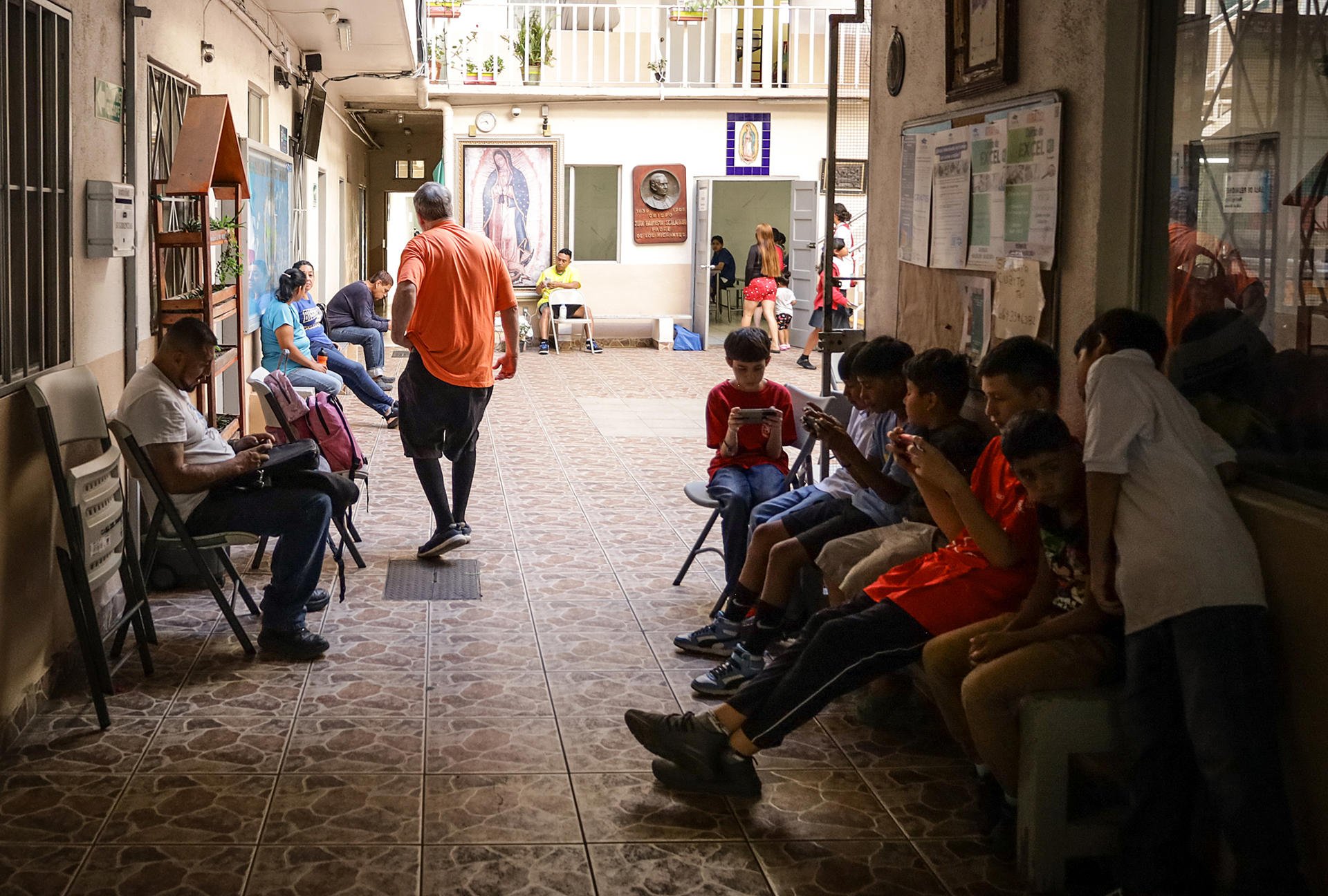
By EFE
Sep 18, 2024, 8:10 PM EDT
Father Patricio Murphy, director of the Casa del Migrante, has been a religious leader for 44 years, of which he has spent 11 in Tijuana, the largest city on the border between Mexico and the United States, where he has worked to make it a place of welcome and not hostility.
Murphy explained in an interview with EFE on Wednesday that the key to his work has been to adapt to the new realities of the migration phenomenon, derived from political, social and economic factors that, according to him, governments have stopped addressing.
“When I arrived in 2013, it was very different. We were only five migrant homes serving a population of which 95% were deportees. Today, when you enter the home, the first thing you notice is that there are many children, many families, and that was not the reality when I started,” she said.
Their work has changed amid a record migration flow in Mexico, where irregular migration rose 193 percent year-on-year in the first half of the year to more than 712,000 people, according to the government’s Migration Policy Unit.
The leader of one of the largest shelters on the border commented that now “people are arriving from various countries, most of them displaced persons and refugees, and the situation with the deported population has become very sad, because they are deporting entire families,” something never seen before.
“We also see people arriving from the south of Mexico seeking asylum due to threats from organized crime. People who leave everything behind and leave without any idea of what the process is like, and they arrive here feeling sad for having had to leave everything behind,” she said.
Criticizes the Government’s immigration policy
The priest asserted that during the six-year term of President Andrés Manuel López Obrador, “they have not done anything right” by denouncing that “the life of migrants is harder with the presence of the National Guard.”
Regarding the change of government, she said that there is always “hope that it could be something different,” but she said she has her doubts because she believes that Claudia Sheinbaum, who takes office on October 1, will repeat López Obrador’s formula, as she herself has promised.
“Although I have hope that if (vice president and Democratic presidential candidate) Kamala Harris comes to the United States, two women can be better than two old men. Women have more compassionate hearts, and hearts that take into account the needs of families are needed,” she said.
Organized crime, a major challenge
Father Murphy said the United States knows well that it needs migrant labor and that thinking about removing them from the country, as proposed by former president and Republican candidate Donald Trump, would be “a disaster for the American economy, because it will cost millions of dollars to do so.”
In Mexico, he said, the challenge is to counteract the control of organized crime on the border, denouncing the closure of a migrant shelter in the border city of Nuevo Laredo, in the state of Tamaulipas, because a criminal group demanded an extortion of “500 dollars for each migrant.”
“The government has no control, organized crime has control over everything and this type of report, for example, did not appear in the press, and it is sad because organized crime is very well organized and the government is not organized,” he said.
The priest has also been prominent in the Casa del Migrante’s festivities on significant dates, such as Easter and the Day of the Dead.
“These are very important dates for us because we can connect the Catholic faith with the reality of migration and with this we seek to draw attention to the fact that there are migrants dying in their journey, wanting to find peace and a home,” he concluded.
Manuel Ayala.
Continue reading:
- Migrants and activists call for addressing corruption and violence on Mexico’s southern border
- Mexico promises trips to migrants with asylum appointments to take them to the US border
- Post-traumatic stress disorder: the syndrome affecting thousands of migrants after violence in Mexico
